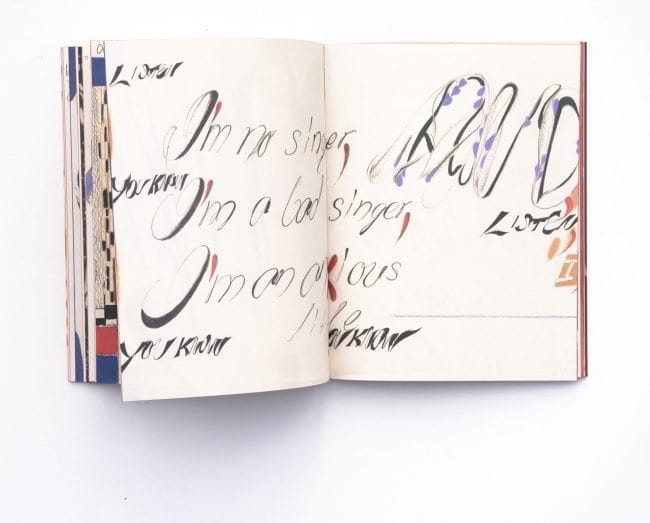Years ago, my primary hobby of choice was looking through old photos. Photos of a group of people mid-laugh at a restaurant’s outdoor patio, clutching Coca Cola branded paper cups that I admired for their antiquated design. Photos of men in a makeshift home–were they soldiers? Miners? I wasn’t quite sure. Women dressed in outdated styles posed with their homemade holiday tinsel. It was irrelevant whether I knew a subject of the photos, or even knew someone who knew someone–it was mostly an exercise taken up because I was bored with the outcome of my own social life. The inherent glossiness in a movie’s presentation of social life bored me–I wanted to observe the glee found in the opposite outcome without it being orchestrated, and that’s what the photos showed me. What was most exciting about these photos was when a photo was graced–months, years, decades ago–with a tiny inscription on the back, some textual clue of how the person behind the camera felt about its subject. The words left behind placed me in the original viewer’s feelings, making the experience all the more emotional.
Reading Sarah Ferrick’s Yours, I’m reminded of the warming sensation of flipping through old photos at this point in my life. While her drawings aren’t inherently social and don’t give me a glimpse into a communal experience, her spare, crushingly meaningful choice of text is similar to the words left behind on the back of a photograph. Her pages are distinctive for their lack of characters; when a figure appears, it's actually a jolt–breaking with the text-only mode means stumbling to making sense of a character’s appearance. In place of figures, Ferrick morphs her letters to the point where they become more interesting than any standard character. She elevates and surrounds them, giving words far more meaning than available in a dictionary, saturating them with more personality than a simple italic possibly could.
The book has four different stories, one of them being Sec, a zine that was released by 2dcloud last spring. While they explore different experiences, each story approaches an event or relationship in a markedly Ferrick way–not by setting us up within a context, or telling a typical story revolving around places or people. If one were to lazily appraise Ferrick’s work as diaristic, it would be a meticulously kept journal -- one that gets straight to what’s important: the emotions of the event. Ferrick’s narrators toss and turn with their feelings, and are noticeably aware of their viewers, “I almost wrote sex instead of sec–well this is embarrassing,” she writes at the beginning of Sec. Ferrick zeroes in on these emotions not only with the meaning of the words that occupy the text, but with the physicality of the words themselves, as they grow large enough to eat up an entire page and become nearly illegible in the process.
The book seems concerned with yearning, mostly. The narrator admits, “this is my 2nd letter to you,” shortly after explaining that they wish they had kissed “or asked to kiss” their subject, and is mostly concerned with the past–“God I laughed, Dear God I laughed,” they reflect as an August night turns to September. Ferrick’s choice of words is precise not in its complexity but in its candidness. Ferrick elects for words like “OH” or “AH,” even a “HEY” to appear repeatedly in the book, illustrating her narrator’s desperation. Reading Sarah Ferrick’s Yours and thinking back to my depressing old hobby helps me get to the heart of this past time–the incomparable sensation of yearning.









